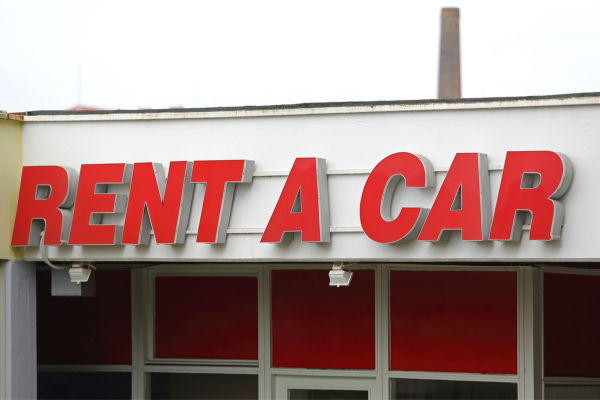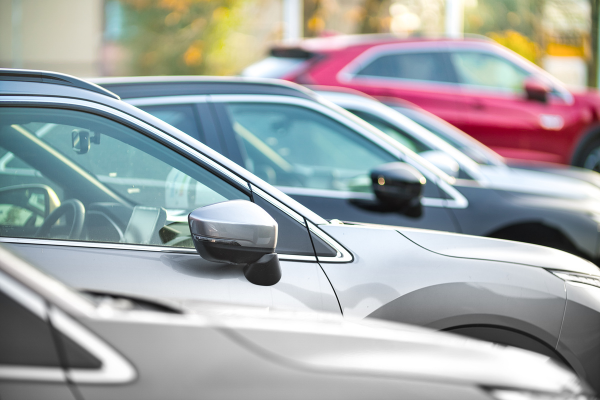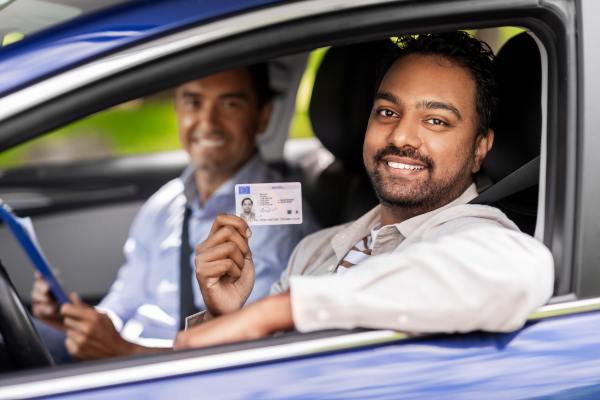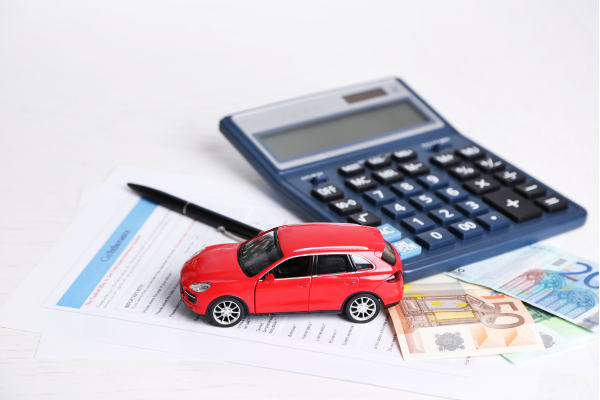Public Transport in Germany: Deutschlandticket, Punctuality Issues, and Tips for Getting Around

Outline:
Overview of Public Transport in Germany
Deutschlandticket: Advantages and Disadvantages
Punctuality Issues with Deutsche Bahn
How to Complain and Get Compensation
Top Tips for Using Public Transport in Germany
Overview of Public Transport in Germany
Germany boasts a highly developed and efficient public transport system that is widely regarded as one of the best in the world. Whether you’re navigating the bustling streets of Berlin or commuting through the scenic countryside, the country’s public transport network provides a reliable and comprehensive solution for getting around.
Key Features of Germany’s Public Transport System
Germany’s public transport system is known for its punctuality, coverage, and integration. The system includes buses, trams, subways (U-Bahn), suburban trains (S-Bahn), and regional trains, all of which are well-connected, making it easy to transfer between different modes of transport.
- Integration and Connectivity: The seamless integration between different types of transport means that passengers can easily switch from a bus to a train or tram without hassle.
- Ticketing Options: The system uses a unified ticketing approach, allowing travelers to use the same ticket across different modes of transport within a given time frame.
- Eco-Friendly: Germany’s commitment to reducing carbon emissions is evident in its investment in public transport as a green alternative to driving.
Major Cities with Extensive Networks
Germany’s largest cities, including Berlin, Munich, Hamburg, and Frankfurt, have some of the most extensive public transport networks:
- Berlin: The capital city boasts a vast network of U-Bahn, S-Bahn, trams, and buses, covering almost every part of the city.
- Munich: Known for its efficient S-Bahn and U-Bahn systems, Munich offers easy access to both the city center and surrounding areas.
- Hamburg: The city’s S-Bahn and U-Bahn networks are complemented by ferries that connect various parts of the harbor city.
- Frankfurt: As a major financial hub, Frankfurt’s public transport system is highly efficient, with an extensive network of trams, buses, and trains.
Types of Transport Available: Buses, Trams, Trains (U-Bahn, S-Bahn)
Germany offers a variety of public transport options, each serving different needs:
- Buses: Operate in urban and rural areas, often covering routes that are not accessible by train or tram.
- Trams: Common in cities like Berlin, Munich, and Dresden, trams are ideal for short, inner-city travel.
- U-Bahn (Subway): The U-Bahn operates mainly in larger cities, providing fast underground travel, particularly in densely populated areas.
- S-Bahn (Suburban Trains): These trains connect city centers with suburban and regional areas, offering a quick and reliable way to commute longer distances.
Ticketing Options and Zones
Understanding the ticketing system is crucial when using public transport in Germany. Most cities are divided into fare zones, and the cost of a ticket depends on the number of zones you travel through.
- Single Tickets: Valid for a one-way journey within a specific zone.
- Day Passes: Allow unlimited travel within the selected zones for a day.
- Monthly/Yearly Passes: Ideal for regular commuters, offering unlimited travel at a discounted rate.
- Group Tickets: Allow multiple people to travel together at a reduced rate.
Introduction to the Deutschlandticket
The Deutschlandticket, introduced as a successor to the popular €9 ticket, offers unlimited travel across all local and regional public transport in Germany for €49 per month. This ticket has become a popular choice for commuters and frequent travelers.
Deutschlandticket: Advantages and Disadvantages
The Deutschlandticket has made travel across Germany more accessible, but it’s important to understand both its benefits and limitations.
Benefits of Using the Deutschlandticket
- Cost-Effective: At €49 per month, the Deutschlandticket is a great value for those who frequently use public transport.
- Convenience: The ticket is valid nationwide on all local and regional public transport, making it easy to travel between cities without worrying about buying multiple tickets.
- No Regional Restrictions: Unlike regional tickets, the Deutschlandticket can be used across different states, offering more flexibility.
Limitations of the Ticket
- Excludes Long-Distance Trains: The Deutschlandticket does not cover long-distance trains such as ICE or IC, which limits its usefulness for longer trips.
- Subscription Model: The ticket operates on a subscription basis, renewing automatically every month, which may not be ideal for occasional travelers.
- Overcrowding: The popularity of the Deutschlandticket has led to overcrowded trains, particularly during peak hours, making travel less comfortable.
Best Use Cases for the Deutschlandticket
- Daily Commuters: Ideal for those who commute regularly within a city or between nearby cities.
- Frequent Travelers: Perfect for individuals who travel frequently across different regions of Germany.
- Students and Young Professionals: A cost-effective solution for students and young professionals who rely heavily on public transport.
Punctuality Issues with Deutsche Bahn
Despite its extensive network, Deutsche Bahn, Germany’s national railway company, has struggled with punctuality, especially on long-distance routes.
Common Problems with Deutsche Bahn’s Punctuality
- Frequent Delays: Many passengers experience delays, particularly on long-distance trains. These delays can be due to various reasons, including track maintenance, weather conditions, and high traffic on certain routes.
- Impact on Commuters: Delays can be particularly frustrating for daily commuters and travelers with tight schedules.
Deutsche Bahn’s Efforts to Improve Punctuality
- Infrastructure Investments: Deutsche Bahn has been investing in infrastructure improvements to reduce delays, including modernizing tracks and upgrading technology.
- Real-Time Information: The company has improved its communication with passengers, providing real-time updates on delays and expected travel times through apps and station announcements.
How to Manage Travel Plans Around Potential Delays
- Plan Ahead: Allow extra time for your journey, especially when traveling during peak hours or on long-distance routes.
- Use Apps for Updates: Utilize apps like DB Navigator to get real-time updates on your train’s status and alternative routes.
- Avoid Tight Connections: If possible, avoid tight connections between trains to reduce the risk of missing a transfer due to delays.
Strategies for Coping with Delays
- Stay Informed: Keep track of delays using the DB Navigator app or station displays.
- Know Your Rights: If your train is delayed by more than 60 minutes, you may be entitled to compensation (see the next section).
- Use the Time Wisely: Carry a book, work on your laptop, or use the time to relax if you’re stuck waiting.
How to Complain and Get Compensation
If you experience delays or other issues while traveling with Deutsche Bahn, you have the right to complain and seek compensation.
Your Rights as a Passenger in Case of Delays
- Compensation Eligibility: If your train is delayed by more than 60 minutes, you can claim compensation. For delays between 60 and 119 minutes, you’re entitled to 25% of the ticket price. For delays of 120 minutes or more, you can claim 50%.
- Season Ticket Holders: If you hold a season ticket, you may be eligible for a partial refund if you experience frequent delays.
Steps to File a Complaint with Deutsche Bahn
- Gather Evidence: Keep your ticket and note the details of the delay, including the scheduled and actual arrival times.
- File a Claim: You can file a claim through the Deutsche Bahn website, at a service center, or by mail. You’ll need to provide your ticket and details of the delay.
- Follow Up: If you don’t receive a response or are unsatisfied with the outcome, follow up with Deutsche Bahn or escalate the complaint to a higher authority.
How to Claim Compensation for Delays
- Online Submission: Use the Deutsche Bahn website or app to submit your compensation claim.
- In-Person Submission: Visit a DB service desk at a station to submit your claim.
- Processing Time: Compensation claims are typically processed within a few weeks, and the refund is usually issued as a bank transfer or voucher.
Tips for Keeping Records to Support Your Claims
- Save All Tickets: Keep both physical and digital copies of your tickets until you’ve received compensation.
- Document Delays: Take screenshots of delay notifications and keep a record of your train’s actual arrival time.
- Stay Organized: Maintain a folder (digital or physical) for all correspondence and documents related to your complaint.
Top Tips for Using Public Transport in Germany
Public transport in Germany is generally efficient and user-friendly, but here are some tips to make your experience even smoother.
How to Plan Your Journey Using Apps and Online Resources
- DB Navigator: This app is essential for planning train journeys, checking schedules, and buying tickets.
- Local Transport Apps: Cities like Berlin (BVG) and Munich (MVV) have their own apps that provide schedules, ticketing options, and real-time updates.
- Google Maps: A reliable tool for planning routes across different modes of transport.
Advantages of Purchasing Monthly or Yearly Passes
- Cost Savings: Regular commuters can save significantly with monthly or yearly passes compared to buying single tickets.
- Convenience: These passes offer unlimited travel within selected zones, eliminating the need to buy a ticket for every trip.
- Flexible Travel: Ideal for those who frequently switch between different modes of transport.
Understanding Fare Zones and How to Avoid Fines
- Zone System: Most cities are divided into fare zones, and the ticket price depends on how many zones you travel through.
- Validate Your Ticket: Ensure you validate your ticket before boarding.Understanding fare zones is crucial for avoiding fines. Each city has a different zone system, and the cost of your ticket depends on how many zones you travel through. Be sure to buy the correct ticket for the zones you’ll cross, and always validate your ticket before boarding. Fines for traveling without a valid ticket (called “Schwarzfahren”) can be steep, typically around €60.
Navigating Peak Hours and Crowded Routes
- Avoid Rush Hours: If possible, travel outside of peak hours (7-9 AM and 4-6 PM) to avoid overcrowded trains and buses.
- Check Train Composition: Some apps, like DB Navigator, can show you which parts of the train are less crowded.
- Choose Alternative Routes: If a route is known for being crowded, consider alternative connections that might be less busy.
Combining Public Transport with Other Mobility Options
- Bike Sharing: Many cities offer bike-sharing programs that complement public transport, allowing you to travel the last mile from the station to your destination.
- Car Sharing: Services like ShareNow or Sixt Share can be used in conjunction with public transport for more flexibility.
- Scooters and E-Scooters: Available in most major cities, these are a convenient option for short distances or navigating city centers.
Disclaimer:
The information provided in this blog post is for general informational purposes only and does not constitute tax, legal, or financial advice. While we strive to ensure the accuracy and timeliness of the information, tax laws are complex and subject to change. We recommend consulting with a certified tax advisor for advice tailored to your individual circumstances. In terms of financial consultation, we collaborate with German Sherpa Financial Solutions, specializing in services for Expats in Germany. Please note that this content does not serve as tax consulting.
Renting a Car in Germany: What You Need to Know
Renting a Car in Germany: What You Need to Know Renting a car in Germany…
Buying and Leasing a Car in Germany: A Guide for Expats
Buying and Leasing a Car in Germany: A Guide for Expats Navigating the car market…
Company Cars in Germany: Understanding the Perks and Tax Implications
Company Cars in Germany: Understanding the Perks and Tax Implications In Germany, company cars (Dienstwagen)…
Getting a German Driving License: Step-by-Step Checklist
Getting a German Driving License: Step-by-Step Checklist Obtaining a German driving license, especially if you’re…
Buying a Used Car in Germany: What You Need to Know
Buying a Used Car in Germany: What You Need to Know Buying a used car…
Car Insurance in Germany: Understanding Pricing and Options
Car Insurance in Germany: Understanding Pricing and Options Car insurance (Kfz-Versicherung) is mandatory in Germany,…






